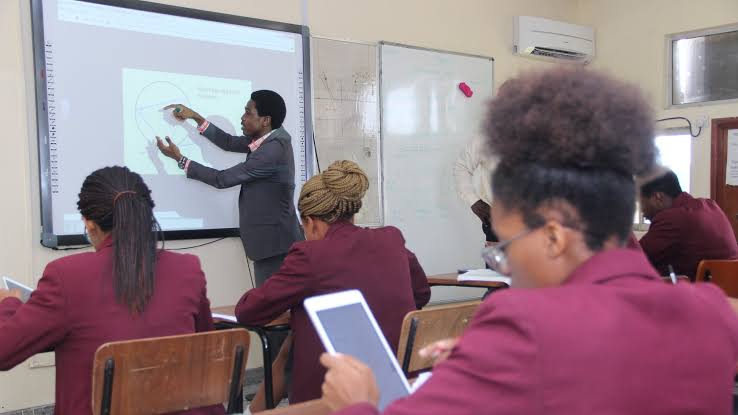Technology in Classrooms in Nigeria
In recent years integration of technology in education has become global trend. Many countries are striving to modernize educational systems. Nigeria, Africa's most populous country is no exception. Nigerian government and various stakeholders have recognized potential benefits. Incorporating technology into classrooms can enhance learning experiences. It can also improve outcomes. However, enthusiasm and efforts notwithstanding implementation of technology in Nigerian classrooms faces numerous challenges. These challenges are multifaceted. They encompass infrastructural, financial social and pedagogical dimensions.
Infrastructural Deficiencies
One of the most significant obstacles to implementing technology in Nigerian classrooms is lack of adequate infrastructure. Many schools particularly those in rural areas, lack basic amenities such as reliable electricity and internet connectivity. These are essential for the effective use of technology. The absence of these fundamental resources hampers ability of schools to integrate digital tools and resources into their teaching processes. Even in urban areas might be relatively better. Frequent power outages and inadequate bandwidth continue to pose substantial challenges
Financial Constraints
Financial limitations are another critical factor impeding adoption of technology in Nigerian classrooms. Cost of acquiring and maintaining technological equipment. Such as computers tablets and interactive whiteboards is high. Schools also need to invest in software. Digital content and ongoing technical support, which further strain their limited budgets. Many public schools in Nigeria are underfunded. Making it difficult for them to allocate sufficient resources for technological advancements. Private schools while often better funded. Still face challenges due to high costs involved in establishing and sustaining technology-driven learning environments.
Teacher Preparedness and Training
Successful implementation of technology in education is heavily dependent on readiness and competence of teachers to integrate digital tools into their teaching methods. In Nigeria many teachers lack necessary training and skills to effectively use technology in the classroom. Traditional teacher-centered approach remains prevalent. Many educators are resistant to change. Professional development programs aimed at equipping teachers with requisite technological skills are often inadequate. Sometimes they are non-existent. Without proper training and support, teachers are unable to fully harness potential of technology to enhance student learning.
Socio-Economic Disparities
Socio-economic disparities further complicate integration of technology in Nigerian classrooms. There is significant gap between urban and rural areas in terms of access to technological resources. Students in urban schools are more likely to have exposure to digital tools. They have access to internet. Their counterparts in rural areas often lack such opportunities. This digital divide exacerbates existing educational inequalities. It puts students from disadvantaged backgrounds at greater disadvantage. Bridging this gap requires targeted interventions. Also policies aimed at ensuring equitable access to technology across all regions.
Cultural and Attitudinal Barriers
Cultural and attitudinal barriers also play role in hindering adoption of technology in education. In some communities there is skepticism towards new technologies. A preference for traditional teaching methods is evident. Parents and community leaders may be resistant to change. Fearing technology could undermine cultural values and norms. Additionally, some educators may perceive technology as threat to their authority. Leading to reluctance in embracing digital tools. Overcoming these cultural and attitudinal barriers requires concerted efforts. To raise awareness about benefits of technology in education. And to build trust among stakeholders.
Policy and Governance Issues
Effective policy and governance are crucial for successful implementation of technology in education. In Nigeria there have been various government initiatives aimed at promoting ICT in schools. Impact of these initiatives has been limited by issues such as corruption. Bureaucratic inefficiencies and lack of continuity in policy implementation further hinder progress. Moreover, there is often a disconnect between policy formulation and actual practice. Many schools struggle to translate policy directives into tangible outcomes. Strengthening governance structures and ensuring transparency and accountability in implementation of ICT policies are essential for overcoming these challenges.
Lack of Localized Content
The availability of relevant and culturally appropriate digital content is another challenge in Nigerian context. Much of educational software and digital resources available are developed in Western countries. These may not align with Nigerian curriculum or cultural context. There is a need for the development of localized content. It must address specific needs and realities of Nigerian students. This requires collaboration. Educators content developers and policymakers must work together to create and promote digital resources. These must be both educationally effective and culturally relevant.
Security and Privacy Concerns
The use of technology in education also raises concerns about security and privacy. Protecting students' personal information and ensuring safe online interactions are critical considerations. In Nigeria, there is limited awareness and infrastructure for cybersecurity, making schools vulnerable to data breaches and cyberattacks. Establishing robust security protocols and educating students and teachers about online safety is crucial for mitigating these risks.
Conclusion
The integration of technology in Nigerian classrooms holds immense potential for transforming education and improving learning outcomes. However, the challenges are substantial and multifaceted. Addressing these challenges requires a holistic approach that involves not only investment in infrastructure and resources but also comprehensive training for teachers, targeted policies to bridge socio-economic disparities, and efforts to change cultural attitudes towards technology. By tackling these issues, Nigeria can move closer to realizing the full benefits of technology in education, ultimately enhancing the quality and accessibility of education for all students.
